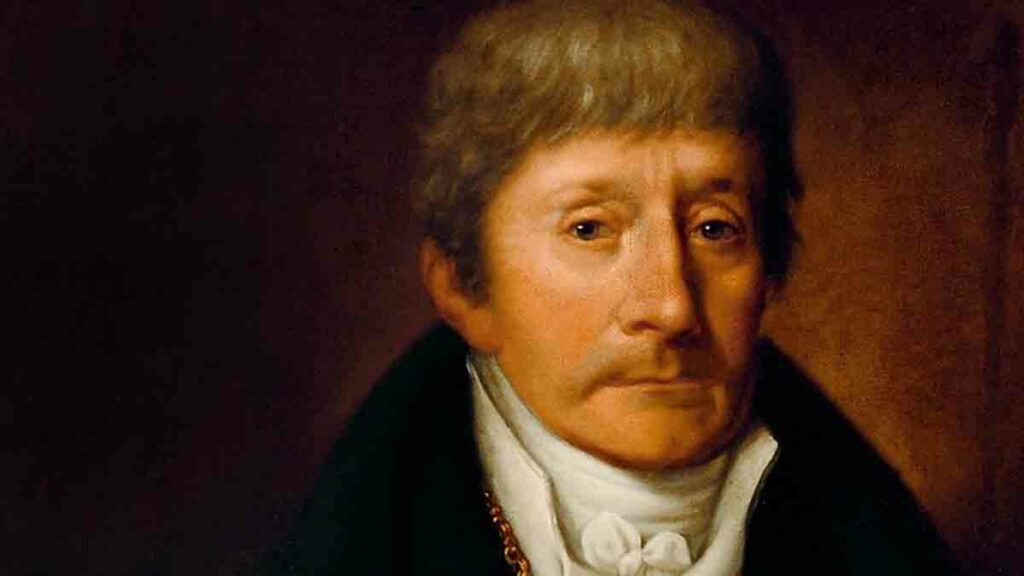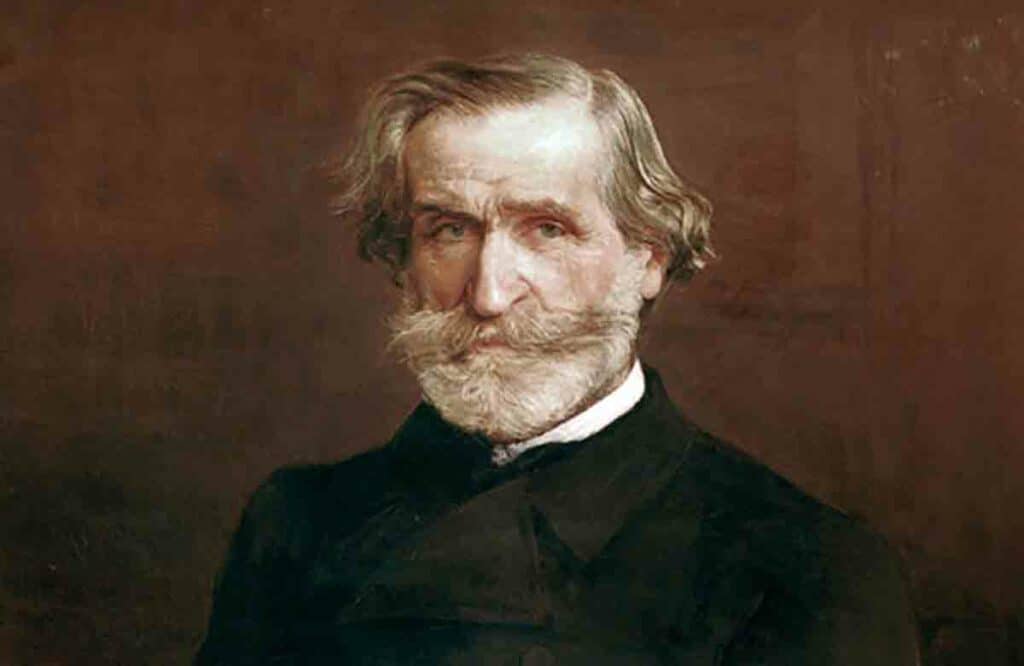The brilliant composer and conductor Antonio Salieri wrote more than 40 operas and a significant number of vocal and instrumental compositions. He wrote musical compositions in three languages.
The accusations that he was involved in the murder of Mozart became a real curse for the maestro. He did not admit his guilt and believed that this was nothing more than an invention of his envious people. While in a psychiatric clinic, Antonio called himself a murderer. Everything happened in delirium, so most biographers believe that Salieri was not involved in the murder.
The childhood and youth of the composer Antonio Salieri
The maestro was born on August 18, 1750 in a large family of a wealthy merchant. At an early age, he showed an interest in music. Salieri's first mentor was his elder brother Francesco, who took music lessons from Giuseppe Tartini. As a child, he mastered the violin and organ.
In 1763, Antonio was left an orphan. The boy was very emotionally worried about the death of his parents. Guardianship of the boy was taken by close friends of his father - the Mocenigo family from Venice. The foster family lived richly, so they could allow Antonio a comfortable existence. The Mocenigo family contributed to Salieri's musical education.
In 1766, the court composer of Joseph II Florian Leopold Gassmann drew attention to the talented young musician. He accidentally visited Venice and decided to take the talented teenager with him to Vienna.
He was attached to the position of a musician within the walls of the court opera house. Gassman not only engaged in the musical education of his ward, but also engaged in his comprehensive development. Those who had to get acquainted with Salieri noted that he gave the impression of a highly intelligent person.
Gassman brought Antonio into the elite circle. He introduced him to the famous poet Pietro Metastasio and Gluck. New acquaintances deepened Salieri's knowledge, thanks to which he reached certain heights in building a musical career.
After the unexpected death of Gassmann, his student took the place of the court composer and bandmaster of the Italian Opera. Just a year later, he was appointed court bandmaster. Then this position was considered the most prestigious and highly paid among creative people. In Europe, Salieri was spoken of as one of the most talented musicians and conductors.
The creative path of the composer Antonio Salieri
Soon the maestro presented the brilliant opera "Educated Women" to fans of his work. It was staged in Vienna in 1770. The creation was warmly received by the public. Salieri fell in popularity. The warm reception inspired the composer to compose operas: Armida, Venetian Fair, The Stolen Tub, The Innkeeper.
Armida is the first opera in which Antonio succeeded in realizing the main ideas of Christoph Gluck's operatic reform. He saw Salieri as his successor and had high hopes for him.
Soon the maestro received an order to create musical accompaniment for the opening of the La Scala theater. The composer complied with the request, and soon he presented the opera Recognized Europe. The following year, specially commissioned by the Venetian theater, the composer presented one of the most brilliant works. We are talking about the opera buffa "School of Jealousy".
In 1776, it became known that Joseph had closed the Italian Opera. And he patronized the German opera (Singspiel). The Italian opera was resumed only after 6 years.
For Salieri, these years were torture. The maestro had to leave the "comfort zone". But there was an advantage in this - the composer's creative activity went far beyond Vienna. He made a significant contribution to the development of such a genre as the singspiel. During this period of time, Antonio wrote the popular piece of music "The Chimney Sweep".
The Singspiel is a musical and dramatic genre that was widespread in Germany and Austria in the second half of the XNUMXth century and at the beginning of the XNUMXth century.
During this period of time, the cultural society was interested in Gluck's compositions. He believed that Salieri was a worthy heir. Gluck recommended Antonio to the management of the La Scala opera house. A few years later, he gave Salieri an order from the French Royal Academy of Music for the opera Danaids. Gluck was originally supposed to write the opera, but due to health reasons he could not do it. In 1784, Antonio presented the work to French society, becoming the favorite of Marie Antoinette.
Music style
The Danaids are not an imitation of Gluck. Salieri managed to create his own musical style, which was based on contrasts. At that time, the classical symphony with similar compositions was not known to society.
In the presented opera and in the following works by Antonio Salieri, art critics noted a clear symphonic thinking. It created a whole not from many fragments, but from the natural development of the material.
In 1786, in the capital of France, the maestro began to communicate with Beaumarchais. He shared with Salieri his composing knowledge and skills. The result of this friendship was another brilliant opera by Salieri. We are talking about the famous musical work "Tarar". The presentation of the opera took place at the Royal Academy of Music in 1787. The show caused quite a stir. Antonio was at the pinnacle of popularity.
In 1788, Emperor Joseph sent Kapellmeister Giuseppe Bonno to a well-deserved rest. Antonio Salieri took over his position. Joseph was a fan of the composer's work, so his appointment to the position was expected.
When Joseph died, Leopold II took his place, he kept the entourage at arm's length. Leopold did not trust anyone and believed that he was surrounded by dummy people. This negatively affected the work of Salieri. Musicians were not allowed near the new emperor. Leopold soon fired the director of the Court Theater, Count Rosenberg-Orsini. Salieri expected him to have the same. The emperor released Antonio only from the duties of bandmaster of the Italian opera.
After the death of Leopold, the throne was taken by his heir - Franz. He was even less interested in music. But still he needed the services of Antonio. Salieri acted as the organizer of celebrations and court holidays.
The Late Years of Maestro Antonio Salieri
Antonio in his youth devoted himself to creativity. In 1804, he presented the musical work The Negroes, which received negative reviews from critics. The singspiel genre was also cool to the public. Now he was even more involved in social and educational activities.

From 1777 to 1819 Salieri was the permanent conductor. And since 1788 he became the head of the Vienna Musical Society. The main goal of the society was to hold charity concerts for the widows and orphans of Viennese musicians. These concerts were filled with kindness and mercy. Famous musicians delighted the audience with the performance of new compositions. In addition, the immortal works of Salieri's predecessors were often heard at charity performances.
Antonio took an active part in the so-called "academies". Such performances were dedicated to one particular musician. Antonio took part in the "academies" as an organizer and conductor.
Since 1813, the maestro was a member of the committee for the organization of the Vienna Conservatory. Four years later, he headed the organization represented.
The last years of the composer's life were filled with experiences and mental anguish. The fact is that he was accused of killing Mozart. He denied his guilt and said that he was not connected with the death of the famous composer. Salieri asked his student Ignaz Moscheles to prove to the whole world that he was not guilty.
Antonio's situation worsened after he attempted suicide. They took him to the clinic. It was said that in a medical institution he deliriously confessed to the murder of Mozart. This rumor is not fiction, it is captured in Beethoven's colloquial notebooks for 1823-1824.
Today, experts doubt the recognition of Salieri and the reliability of the information. In addition, a version has been put forward that Antonio's mental state was not the best. Most likely, it was not a confession, but self-blame against the background of deteriorating mental health.
Details of the personal life of the maestro
The personal life of the maestro has developed successfully. He tied the knot with Theresia von Helferstorfer. The couple got married in 1775. The woman gave birth to 8 children.
The wife for Salieri became not only a beloved woman, but also a best friend and muse. He idolized Thearesia. Antonio was survived by his four children and his wife. Personal losses affected his emotional background.
Interesting facts about Antonio Salieri
- He adored sweets and flour products. Antonio retained his childish naivety to the end of his days. Perhaps that was why no one could believe that he was capable of murder.
- Thanks to hard work and daily routine, the maestro was productive.
- They said that Salieri was far from envy. He helped young and talented people improve their knowledge and get good positions.
- He devoted considerable time to charity.
- After Pushkin wrote the work "Mozart and Salieri", the world began to accuse Antonio of the murder with even greater confidence.
Death of the composer
The famous maestro died on May 7, 1825. The funeral took place on May 10 at the Matzleindorf Catholic Cemetery in Vienna. In 1874, the composer's remains were reburied at the Vienna Central Cemetery.



